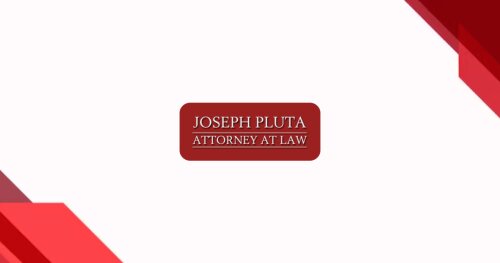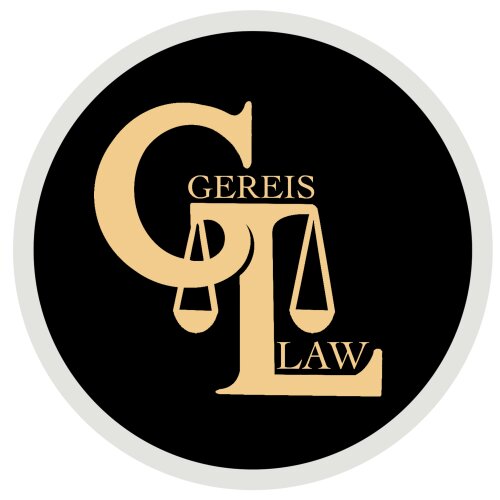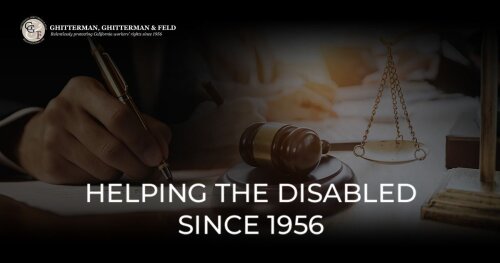Best Restructuring & Insolvency Lawyers in Vermont
Share your needs with us, get contacted by law firms.
Free. Takes 2 min.
Or refine your search by selecting a city:
List of the best lawyers in Vermont, United States
About Restructuring & Insolvency Law in Vermont, United States
Restructuring and insolvency law in Vermont covers the rights, responsibilities, and remedies available to businesses and individuals facing financial distress. Broadly, restructuring refers to a legally supervised process designed to help a company or individual reorganize debt, assets, and operations, with the goal of regaining financial stability. Insolvency, on the other hand, happens when someone cannot pay their debts as they come due. In Vermont, insolvency matters are governed by federal bankruptcy laws supplemented by certain Vermont-specific statutes and court procedures. These laws provide means to address and resolve financial difficulties, whether through restructuring, liquidation, or negotiated settlements.
Why You May Need a Lawyer
Legal guidance is essential for anyone facing restructuring or insolvency issues. Common situations where you might require a lawyer include:
- Filing for bankruptcy, whether as an individual or business
- Negotiating with creditors to avoid bankruptcy
- Managing foreclosure or repossession threats
- Restructuring business operations and finances to stay afloat
- Responding to lawsuits or collection actions from creditors
- Guidance on protecting exempt assets under Vermont and federal law
- Understanding personal or business liability in cases of debt default
- Advising on alternatives to bankruptcy, such as debt settlement or assignments for the benefit of creditors
An experienced restructuring and insolvency lawyer in Vermont can provide tailored advice to help protect your interests and maximize available options.
Local Laws Overview
In Vermont, most restructuring and insolvency matters are addressed under the United States Bankruptcy Code, which applies nationwide. However, Vermont-specific regulations also play a significant role, particularly in the following areas:
- Homestead Exemption: Vermont law protects a portion of a debtor’s equity in a primary residence from creditors in bankruptcy cases.
- Personal Property Exemptions: State statutes allow certain personal assets to be exempt from seizure during liquidation or restructuring.
- Assignment for the Benefit of Creditors (ABC): Vermont statutes provide procedures for businesses to liquidate assets outside of formal bankruptcy, under state court supervision.
- Foreclosure Procedures: Vermont’s judicial foreclosure process gives homeowners specific rights and timelines for contesting collections or negotiating modifications.
- Small Business Bankruptcy: Vermont courts implement the federal Small Business Reorganization Act (Subchapter V), offering streamlined counsel for troubled small business owners.
The United States Bankruptcy Court for the District of Vermont in Rutland and Burlington oversees federal bankruptcy proceedings, guided by local rules and procedures. Consulting a Vermont-based legal professional is important to understand how national and local laws will affect your case.
Frequently Asked Questions
What is the difference between bankruptcy and insolvency in Vermont?
Insolvency means an inability to pay debts as they come due. Bankruptcy is a formal legal process, under federal law, used to resolve insolvency through reorganization or liquidation. Bankruptcy is available to both individuals and businesses.
Which bankruptcy chapters are most common in Vermont?
Individuals usually file under Chapter 7 (liquidation) or Chapter 13 (repayment plans). Businesses commonly use Chapter 7, Chapter 11 (reorganization), or the streamlined Subchapter V for small businesses.
What property can I keep if I file for bankruptcy in Vermont?
Vermont’s homestead exemption allows you to keep up to a specified amount of equity in your primary residence. Additional exemptions apply to vehicles, personal property, tools of the trade, retirement accounts, and more. The precise amounts change periodically and should be confirmed with a local attorney.
Can creditors continue to collect debts after I file for bankruptcy?
No. An automatic stay goes into effect immediately upon filing for bankruptcy, which halts most collection actions, foreclosure proceedings, garnishments, and lawsuits.
Is filing bankruptcy the only option when facing insolvency in Vermont?
No. Alternatives such as debt negotiations, assignments for the benefit of creditors, voluntary out-of-court workouts, or asset sales may be available. An attorney can help evaluate the best approach.
What is an assignment for the benefit of creditors (ABC) in Vermont?
An ABC is a state court-supervised process allowing a business to transfer assets to a trustee to be liquidated for creditors, as an alternative to federal bankruptcy.
How does Vermont law protect my home?
Vermont has a generous homestead exemption, which can protect a significant portion of your home’s equity from creditors or in bankruptcy. The specific dollar amount is set by state law and may be adjusted over time.
Will I lose all my assets if I file for personal bankruptcy in Vermont?
Not necessarily. Many types of property are exempt under Vermont law, and individuals can often keep assets necessary for daily living. Non-exempt assets may be used to pay creditors in Chapter 7, but Chapter 13 allows for repayment without significant asset loss.
How long does the bankruptcy process take in Vermont?
The duration varies. A simple Chapter 7 case often takes about three to six months. Chapter 13 and Chapter 11 cases can take several years depending on the repayment plan.
Where are bankruptcy cases filed in Vermont?
All bankruptcy cases in Vermont are handled in the United States Bankruptcy Court for the District of Vermont, with main offices in Rutland and Burlington.
Additional Resources
Individuals and businesses seeking more information or assistance in Vermont should consider the following organizations and resources:
- United States Bankruptcy Court for the District of Vermont - Offers information, forms, and procedural guidance
- Vermont Bar Association - Lawyer referral services and educational materials
- Vermont Legal Aid - Free or low-cost legal help for qualified individuals
- Vermont Department of Financial Regulation - Resources for consumers and businesses on debt, credit, and financial regulation
- Consumer Credit Counseling Services - Non-profit organizations offering financial education and debt management advice
Next Steps
If you are considering restructuring or insolvency action in Vermont, it is important to act promptly. Here are recommended next steps:
- Gather all relevant financial documents, including debts, assets, income, and expenses
- List all creditors and review any summons, collection letters, or foreclosure notices
- Consult with a Vermont-based restructuring and insolvency lawyer as soon as possible to understand your rights and options
- Explore free or low-cost legal resources if you cannot afford private counsel
- Stay proactive and avoid making decisions under stress or pressure from creditors - professional advice can help you make informed choices
A knowledgeable legal advisor can assess your situation, explain available options, negotiate with creditors, and guide you through court processes if necessary. Early consultation often leads to better outcomes in restructuring and insolvency cases in Vermont.
Lawzana helps you find the best lawyers and law firms in Vermont through a curated and pre-screened list of qualified legal professionals. Our platform offers rankings and detailed profiles of attorneys and law firms, allowing you to compare based on practice areas, including Restructuring & Insolvency, experience, and client feedback.
Each profile includes a description of the firm's areas of practice, client reviews, team members and partners, year of establishment, spoken languages, office locations, contact information, social media presence, and any published articles or resources. Most firms on our platform speak English and are experienced in both local and international legal matters.
Get a quote from top-rated law firms in Vermont, United States — quickly, securely, and without unnecessary hassle.
Disclaimer:
The information provided on this page is for general informational purposes only and does not constitute legal advice. While we strive to ensure the accuracy and relevance of the content, legal information may change over time, and interpretations of the law can vary. You should always consult with a qualified legal professional for advice specific to your situation.
We disclaim all liability for actions taken or not taken based on the content of this page. If you believe any information is incorrect or outdated, please contact us, and we will review and update it where appropriate.
Browse restructuring & insolvency law firms by city in Vermont
Refine your search by selecting a city.














